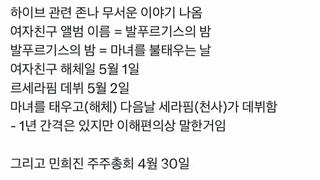
Does a video show evidence of a new virus called "coculon" that has emerged after an individual in China consumed turtle meat? No, that's not true: There is no evidence to suggest that a new virus called "coculon" is the source of a zoonotic disease transmitted from an infected animal to a human. Authorities have separately detected cholera-causing bacteria in a student and found cholera in a sample of softshell turtles at a wet market in China, but the two incidents did not involve a new virus.
The claim originated from a video (archived here) published on TikTok by @12_choi_07_seo_20jun_ on July 1, 2023, with a caption translated into English from Korean by Lead Stories staff that reads:
New Virus - Coculon
A Chinese individual is found to have caught this virus while eating a turtle.
This is what the post looked like on TikTok at the time of writing:

(Source: TikTok screenshot taken on Tue Dec 12 17:44:15 2023 UTC)
A review of the website for the International Committee on Taxonomy of Viruses, which maintains a database of known viruses, shows no results for "coculon" and the World Health Organization, which is responsible for monitoring viral disease outbreaks, has no information relating to a virus by that name.
Reuters published an article (archived here) on July 14, 2022, about a cholera case found in a student and also separately found in samples from softshell turtles in Wuhan, China. The university student's infection was caused by the vibrio cholerae O139 strain, and authorities announced the contaminated samples of the softshell turtles were unrelated to the student's infection.
According to Bloomberg News (archived here), published on July 15, 2022, the cholera samples from the softshell turtles were taken at the Baishazhou wet market. The shops related to turtles were closed for three days and the entire wet market was disinfected.
Cholera is a life-threatening illness characterized by acute diarrhea caused by vibrio cholerae bacteria infection in the intestine. Only two vibrio cholerae serogroups cause outbreaks: O1 and O139. According to the World Health Organization, the vibrio cholerae O139 was first identified in Bangladesh in 1992.
There were no relevant results to cholera from searching 'coculon' on Google and Korean search platforms including on Google (archived here), Naver (archived here) and Daum (archived here)













